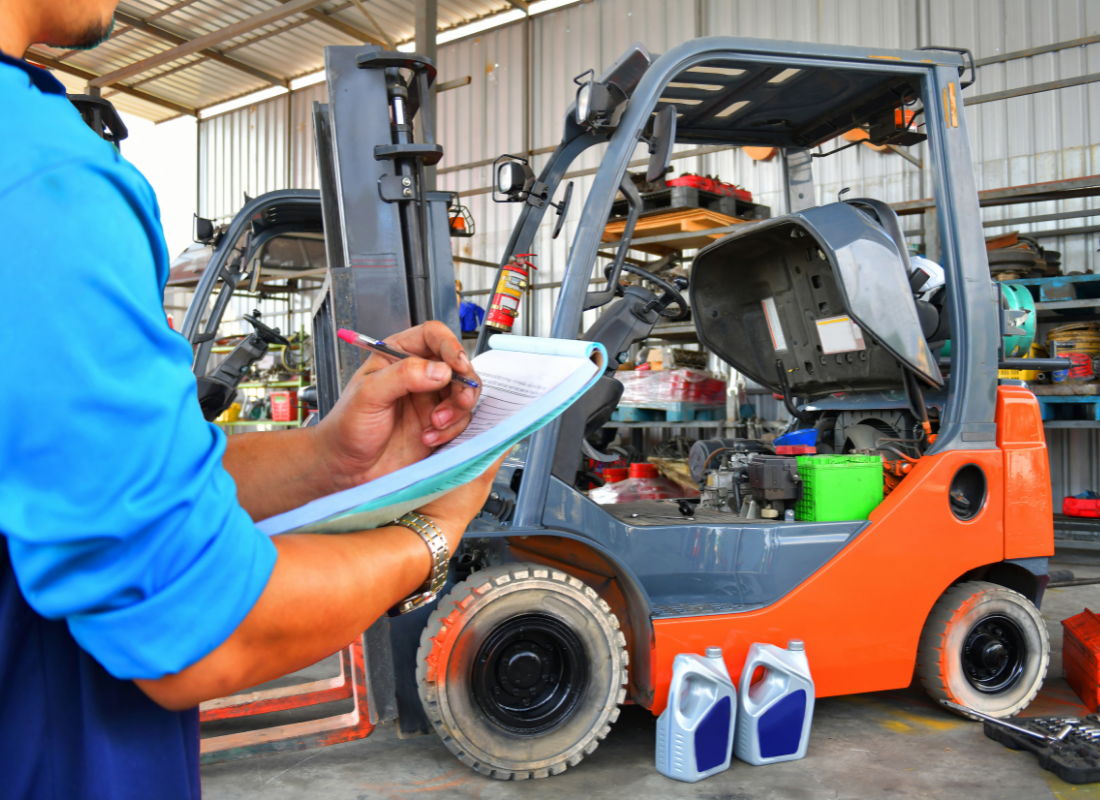Top Mistakes Fleet Managers Make
Fleet managers have a lot to handle. If the proper procedures aren’t in place, simple mistakes can happen that could derail the whole operation. With a large number of expensive assets and employees to manage, it is crucial that fleet managers are aware of common mistakes to avoid that could cost their operation thousands of dollars.
We created a quick list of Top Mistakes Fleet Managers Make, so you can avoid them.
1) Not Enough Training
Training in a warehouse environment is absolutely crucial for the safety of both the operator and those around them. While most warehouses and distribution centers provide training as part of the onboarding process, ongoing training and reviews are not as commonplace, yet equally crucial to ensure each employee continues to perform their jobs/tasks safely and correctly.

Employees can get too comfortable with their roles and can begin to neglect important safety procedures like lockout – tagout, checklists and even wearing proper gear. It is the manager’s job to routinely oversee their employees and reinforce the reasons behind proper safety procedures through ongoing training opportunities, ultimately for the purpose of protecting how their employees, assets, and products are being handled.
While a daily walk around your facility may not be possible, using the information from your telematics devices such as impact detection, sharp turn monitoring and checklist adherence, you can quickly identify the employees that may need additional training.
Check out our blog “8 Tips to Decrease Operator Injuries” to learn more about proper safety steps to follow for your organization.
2) Not Following Maintenance Schedules
Your operation is filled with expensive assets that need special care to work correctly. What managers forget to do is to follow maintenance schedules, and instead wait for the machines/vehicles to have a problem, then have their technicians fix it. This practice not only results in excessive downtime, ruining productivity but also can cause significant damage that can shorten its lifetime.
What managers have to do is look for telematics devices that will utilize crucial vehicle usage data to create a maintenance schedule. It should also be able to notify you when upcoming maintenance is needed, so you can optimize the schedule of all your assets and employees to maintain productivity while some assets are down for a couple of hours.
3) Not Using An Efficient Form of Scheduling
We mentioned scheduling for maintenance, now let’s look at how you schedule your operation to run smoothly every day. Your fleet and employees are your highest investment, yet most managers struggle to know how to best optimize those resources.
Tracking vehicle usage is critical for having an accurate view of your operation’s productivity. Knowing if one vehicle is being underutilized while another asset is being used too much, can make a great impact on your overall operation. Looking into data like vehicle run time, idle time, routes and fuel consumption can provide you with the information you need to redistribute or eliminate unnecessary resources.
4) Not Communicating
Without communication, nothing could be accomplished efficiently. Managers have many different employees performing different tasks, and most fail to use updated communication methods or neglect having regular meetings to correctly show new benchmark goals, objectives, new clients and even company policies to be followed.

Using devices that have text-messaging capabilities is a quick and easy way to ensure you are always in constant contact with your employees. Also, setting clear expectations for your employees is a crucial step in ensuring high-performance levels. It’s up to you as the manager to be a familiar face to your employees, and someone they can feel safe coming to when issues arise.
Weekly or Bi-weekly meetings, email, and group messages are great ways to do that.
5) Not Innovating
A great manager not only makes their operation run smoothly but comes up with new ways to continue improving.
Technology is helping innovation happen at a much faster pace than in the past. Staying aware of new devices, technological solutions, and software that can make your life and your productivity better is what can take you from being a good to a great manager.
Subscribe here to receive the latest industry insights, technological advances and more through our blog.
We hope this quick list gives you some pointers on how to become a better manager by seeing what not to do.
If you feel like any of the above steps are impossible for your organization, reach out to us and we’ll connect you to a fleet expert to talk great solutions for your whole operation.
Access is proud to offer telematics that works exactly how we promise for a price that makes sense.
